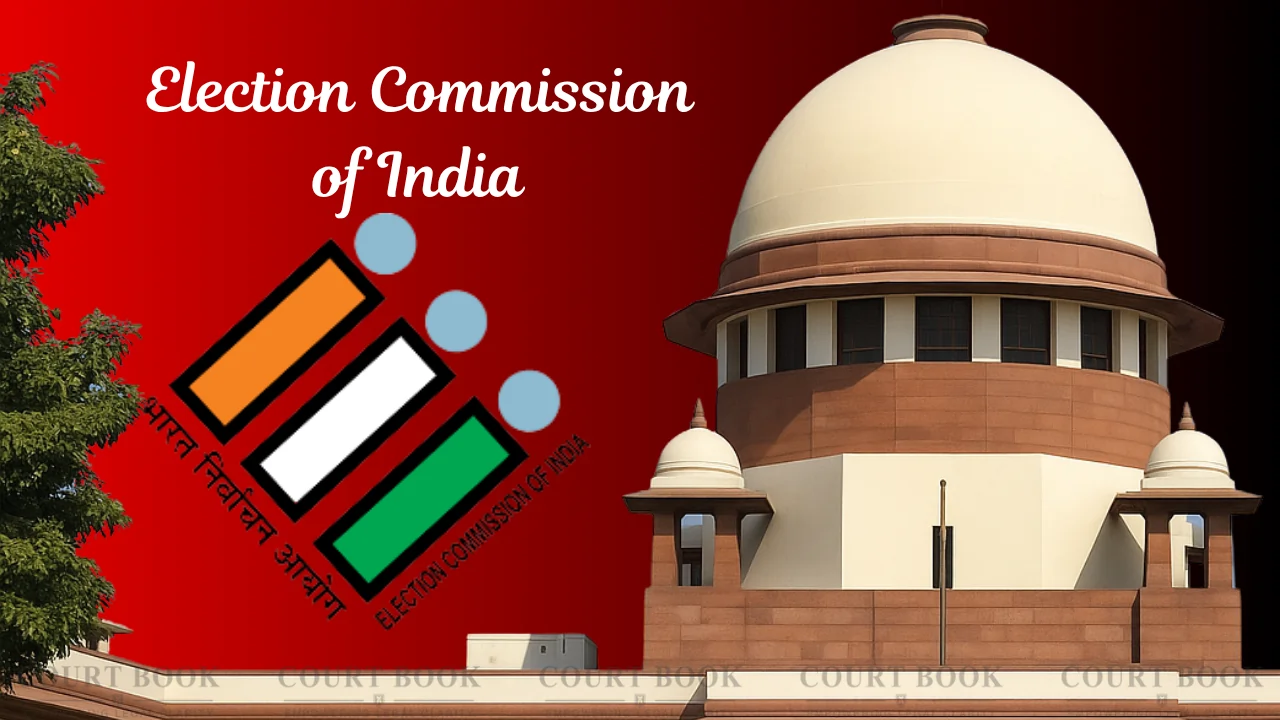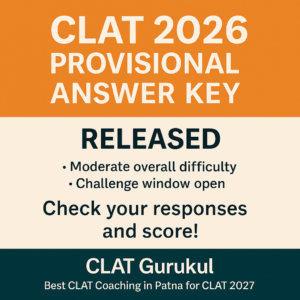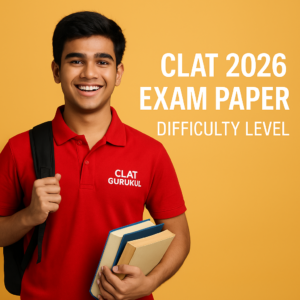
To Count Everyone In – Supreme Court’s Intervention on Electoral Rolls and Citizenship
GK & Current Affairs for CLAT | CLAT Current Affairs 2026
Powered by CLAT Gurukul – Best online coaching for CLAT
Introduction
The integrity of electoral rolls lies at the heart of a functioning democracy. A free and fair election requires that every eligible citizen is included in the electoral list and that exclusions or inclusions are carried out transparently. In India, where elections involve hundreds of millions of voters, even small administrative decisions on voter registration have massive democratic consequences.
Recently, the Supreme Court of India (SC) in Association for Democratic Reforms vs Election Commission of India (2025) delivered a landmark order concerning the Special Intensive Revision (SIR) exercise in Bihar. The Court directed the Election Commission of India (ECI) to make the electoral rolls more accessible, transparent, and challengeable, preventing wrongful exclusion of genuine voters. Importantly, the SC emphasized that declaring voters “non-citizens” without robust evidence and due process undermines both constitutional rights and democratic participation.
For CLAT 2026 aspirants, this case represents a crucial convergence of constitutional law, electoral law, and the judiciary’s role in protecting democracy. Understanding this development is essential not just as part of CLAT Current Affairs 2026 but also for long-term awareness of how constitutional bodies like the ECI and SC balance each other. At CLAT Gurukul, the best online coaching for CLAT, we make sure that such landmark rulings are explained with clarity and context so that aspirants are fully prepared to handle legal reasoning passages and current affairs-based questions.
Why in News?
- Supreme Court Order in August 2025 – The SC directed the ECI to provide reasons for exclusion of voters from the electoral roll and prevent arbitrary labeling of voters as “non-citizens.”
- Context of Bihar’s Special Intensive Revision (SIR) – During the SIR process, several genuine voters were reportedly excluded, raising concerns about transparency.
- Parallel with Lal Babu Hussain Case (1995) – The SC’s latest order “rhymes” with its earlier 1995 ruling in Lal Babu Hussain vs Electoral Registration Officer, where it upheld the rights of individuals wrongly excluded from electoral rolls.
- Institutional Balance – The case highlighted the delicate relationship between the ECI and the SC, both crucial for upholding electoral democracy in India.
- Significance – With India being the world’s largest democracy, errors in electoral rolls impact millions, making this judgment crucial for Current Affairs 2026 and beyond.
Point-wise Summary of the Article
- Background of the Case
- The SC’s ruling in Association for Democratic Reforms vs ECI (2025) came amid the Special Intensive Revision (SIR) of electoral rolls in Bihar.
- Exclusion of voters raised fears of wrongful disenfranchisement, especially of the poor and marginalized.
- The Court stressed that any exclusion should be backed with reasons, and affected individuals must have the chance to challenge it.
- Lal Babu Hussain Case (1995) Precedent
- In 1995, the SC dealt with a similar situation when the ECI attempted to force voters in Delhi and Mumbai to prove their citizenship through limited documentary evidence.
- Nearly 3 lakh people were asked to prove citizenship, often with ration cards being rejected.
- The SC ruled that citizenship cannot be stripped lightly and that every voter must be given a fair opportunity.
- The 2025 judgment builds upon this principle, ensuring inclusivity in electoral rolls.
- Role of the Representation of the People Act, 1950 & Registration of Electors Rules, 1960
- These laws empower the ECI to conduct periodic revisions of electoral rolls.
- The SIR process is meant to correct errors but often leads to excessive exclusions.
- The SC emphasized that the ECI must act fairly, transparently, and give reasons for exclusion so citizens can appeal.
- Citizenship vs Right to Vote
- The right to vote in India is not a fundamental right but a constitutional and statutory right.
- However, exclusion from electoral rolls on grounds of “citizenship doubt” creates a deeper constitutional issue.
- Aadhaar cards and even Electoral ID cards are not sufficient proof of citizenship, raising questions about what counts as valid evidence.
- Institutional Balance: SC vs ECI
- Historically, the SC and ECI have had a dynamic relationship — sometimes in agreement, sometimes in conflict.
- Example: The SC upheld the “None of the Above (NOTA)” option and struck down electoral bonds as unconstitutional.
- The 2025 SIR judgment is another example of the SC stepping in to ensure that ECI processes uphold democratic inclusivity.
- Broader Electoral Reforms
- The SC’s intervention also nudges the ECI to improve processes relating to:
- Declaration of assets and criminal records by candidates.
- Disqualification of convicted politicians.
- Improving transparency in electoral finance.
- By ensuring fair electoral rolls, the SC strengthens the foundation of broader democratic reforms.
- The Human Dimension
- Wrongful exclusion disproportionately affects the poor, marginalized, and illiterate citizens who may lack extensive documentation.
- In a democracy of over 900 million voters, even a small error rate leads to millions being disenfranchised.
- The Court’s insistence on reasons for exclusion empowers citizens to challenge wrongful deletions.
Notes – Peculiar Terms Explained
- Electoral Roll – Official list of all eligible voters in a constituency.
- Special Intensive Revision (SIR) – A detailed exercise undertaken by the ECI to update and verify electoral rolls.
- Disenfranchisement – Denial or loss of the right to vote.
- Lal Babu Hussain Case (1995) – Landmark SC case that prevented arbitrary exclusion of voters in Delhi/Mumbai based on unverified “citizenship doubts.”
- Representation of the People Act (1950 & 1951) – Laws governing elections, electoral rolls, and qualifications/disqualifications of voters and candidates.
- Electoral Registration Officer (ERO) – Local officer responsible for preparing and updating electoral rolls.
- NOTA (None of the Above) – Option in Indian elections allowing voters to reject all candidates.
- Electoral Bonds – Financial instruments for political party donations, recently struck down as unconstitutional by the SC.
- Constitutional Bonhomie – A cooperative relationship between institutions like the SC and ECI for strengthening democracy.
Analytical Insights for CLAT 2026 Aspirants
- Democracy and Rule of Law
- The judgment highlights that democracy is not just about holding elections but ensuring every eligible citizen has a fair chance to vote.
- It reflects the principle of inclusivity enshrined in the Constitution.
- Judicial Review in Electoral Matters
- The SC reaffirms its role in supervising the functioning of the ECI.
- Judicial review prevents misuse of administrative powers that could disenfranchise millions.
- Citizenship Debate
- The case indirectly raises issues of citizenship verification in India, especially amid political debates around the NRC (National Register of Citizens) and CAA (Citizenship Amendment Act).
- CLAT aspirants must connect this ruling with broader constitutional debates.
- Relevance for CLAT Current Affairs 2026
- Directly connects with legal reasoning passages in CLAT where candidates may have to analyze rights, institutions, and judicial intervention.
- Strengthens understanding of how constitutional bodies interact.
- Future of Electoral Reforms
- The judgment will likely push the ECI to improve technology, documentation processes, and grievance redressal mechanisms in electoral roll management.
Conclusion
The Supreme Court’s 2025 order on the Special Intensive Revision (SIR) exercise in Bihar marks a pivotal moment in India’s democratic journey. By directing the ECI to provide reasons for exclusion and to avoid arbitrary categorization of voters as “non-citizens,” the Court reinforced the principle that democracy must count everyone in.
For CLAT Current Affairs 2026, this case is a perfect example of the judiciary safeguarding electoral integrity. It teaches aspirants how constitutional law, electoral law, and administrative practices intersect. At CLAT Gurukul, the best online coaching for CLAT, we encourage students to not just memorize facts but to critically analyze such developments — because understanding the quality of democracy is as important as preparing for the exam.
Ultimately, this judgment reminds us that the right to vote is the lifeblood of democracy — and its protection is central to India’s constitutional vision.
This Blog is Powered by CLAT Gurukul — India’s Leading Law Entrance Prep Platform
At CLAT Gurukul, we believe in empowering future legal minds with the right blend of knowledge, strategy, and mentorship. This blog is a reflection of our commitment to quality content that not only helps aspirants stay updated but also sharpens their conceptual clarity.
Why CLAT Gurukul?
- Personalized Mentorship by Top Legal Educators
- Comprehensive Study Materials & Legal Updates
- Daily Practice Sets, Mocks & Performance Tracking
- Result-Oriented Strategy for CLAT, AILET, and CUET
Whether you’re reading this article to deepen your understanding or to stay ahead in your exam prep — you’re already one step closer with CLAT Gurukul by your side.
Join thousands of successful aspirants who trusted CLAT Gurukul and cracked India’s top law entrance exams.
Visit https://www.youtube.com/@CLATGurukul/shorts to learn more or speak to our experts now!
Note from CLAT Gurukul
At CLAT Gurukul, we are committed to providing free CLAT study material, including CLAT current affairs, legal reasoning practice sets, general knowledge updates, logical reasoning questions, English comprehension exercises, and more — all curated by top mentors.
Our blog section is regularly updated with high-quality CLAT content tailored to match the evolving pattern of the CLAT UG exam. Whether you’re looking for CLAT 2026 current affairs, CLAT legal reasoning passages, or mock practice sets, we have you covered.
We believe in open-access learning and will continue to publish free CLAT preparation resources to help serious aspirants succeed.
Explore more free content under categories like:
Best online coaching for CLAT, CLAT current affairs, CLAT GK updates, CLAT legal updates, CLAT logical reasoning, and CLAT English preparation.
For structured learning, daily mocks, and expert mentorship, visit https://www.youtube.com/@CLATGurukul/shorts — the Best CLAT Coaching in Patna and India’s most trusted platform for CLAT online coaching.




